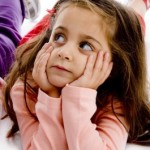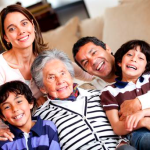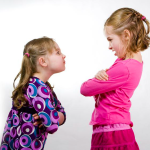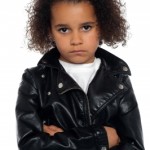
(Presented at Childhood Depression Awareness Day October 20, 1999)
The problematic conceptual polarization of mind versus brain, which has plagued the mental health movement since its inception, has never been demonstrated more vividly than in children and adolescents mental health. The dichotomy is represented most starkly on the contemporary scene by intense and sometimes bitter disputes of a clinical, ideological and even political nature that are encountered in the field of child mental health.
Tonight, CYM (Caring for Young Minds) has invited all of us to participate in a worthwhile educational experience, with particular focus on the “child who cannot pay attention”. The goal is to reach a broad-based contemporary perspective from multiple sources, starting with the understanding of the child her/himself as a sophisticated being. The breadth of the spectrum includes emotions, behaviour, cognition and physiology.
To complicate matters, any attempt to understand the child out of the family context and his unique experience, is doomed to fail. A developmental bio-psycho-social approach to clinical assessment of children and adolescents is what families should expect from our mental health system.
The past decade has seen numerous efforts to integrate the diverse approaches to child psychiatry, for example by the publication of the DSMIV. This volume has helped mental health clinicians to share one reference and common classification. Meanwhile and adversely, it provided clinicians and consumers alike a ‘check list’ and concrete limitations that could lead to or deny certain diagnosis. Applying such a strictly phenomenological and descriptive ‘check list’ on our children, in a sense, does not address the child/adolescent as a person. If we use our collective experience and resources as parents and professionals, we should be able to listen to and understand the child. Nothing is more comforting to a youth than an understanding ‘other’.
Since familial aggregation of NBDs could indicate either genetic or environmental influence or both, the need for a ‘comprehensive assessment and treatment plan’ is the only path to ensure optimal care for our children. NBDs in children have long been under diagnosed and misdiagnosed because of the belief that a child’s immaturity and the developing personality would not allow the development or experience of many of the NBDs. That is far from the truth. Although the exact prevalence of NBDs in children and adolescents is unknown, several studies concluded that in the general population, 15 – 20% of children suffer from an NBD .
The real challenge for families and clinicians is to identify these children in our community and/or at home. It is a difficult task because children do not begin to use language as a vehicle for communicating information appropriately until around age seven.
Even while approaching the new millennium, verbal communication still is the best tool in diagnosing NBDs in children. No wonder many NBDs in children were not officially recognized in North America until the mid-80′s, at least 20 years after the Europeans identified and dealt with these disorders.
Since Neurobiological disorders often manifest in different ways at different points in development, child mental health clinicians should use the check list and standardized testing as ‘complementary tools’, not to replace listening to the child him/herself. Many of the children we fail to listen to end up somehow coping with a heavy load of vulnerability. Many enter their adulthood burdened by the initial disorder and a profound sense of loneliness.
Years later, adult psychiatry services are badly needed by the same population as adults.
We should not forget that ‘Childhood is a Short Season’.
Maged Kodsi, M.D.
Child and Family Psychiatrist




